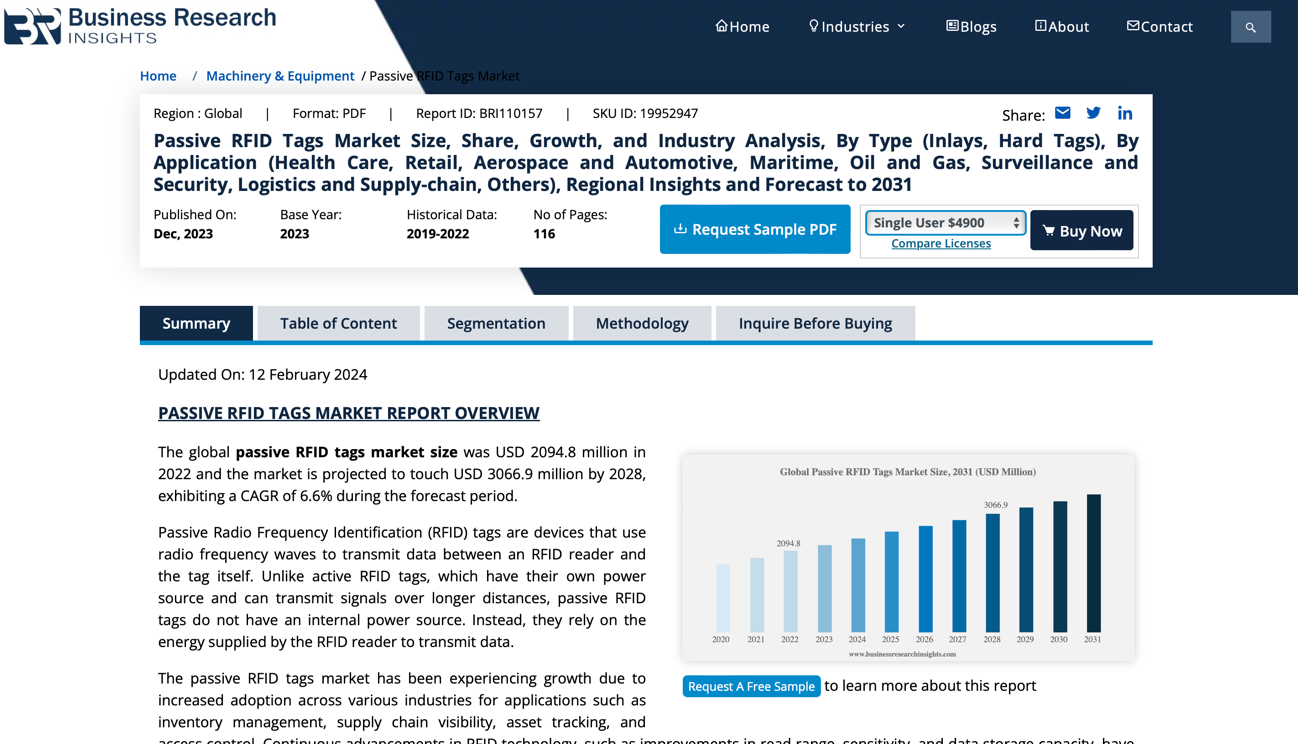
The global passive RFID tags market is experiencing steady growth, with a projected increase from USD 2094.8 million in 2022 to USD 3066.9 million by 2028, representing a CAGR of 6.6%. Passive RFID tags, which rely on energy from RFID readers rather than having their own power source, are being increasingly adopted across various industries for applications such as inventory management, supply chain visibility, asset tracking, and access control. The healthcare sector has seen significant adoption of passive RFID technology for tracking medical equipment and managing inventory.
The COVID-19 pandemic initially hampered market growth due to disruptions in the global supply chain, impacting the production and distribution of RFID components. However, as demand gradually returned to pre-pandemic levels, the market witnessed a resurgence, albeit with shifts in demand across different sectors.
Key driving factors for market growth include the growing e-commerce and retail industry, where RFID technology is used to enhance inventory accuracy and optimize supply chain operations. Technological advancements, integration with IoT and cloud technologies, and a rising need for asset tracking also contribute to market expansion.
However, cost and privacy concerns remain significant barriers to wider adoption. The initial costs of implementing RFID technology, along with privacy worries related to tracking personal information, pose challenges, especially for smaller enterprises.
North America dominates the market, particularly the United States, owing to its early adoption of RFID technology and well-established infrastructure in various industries.
Key industry players such as Honeywell, HID Global Corporation, and GAO RFID Inc. play a crucial role in driving market dynamics through innovation and market expansion. These players invest in research and development to introduce innovative designs and materials in passive RFID tags.
The report provides a comprehensive analysis of the market, including SWOT analysis, market segmentation, regional insights, and profiles of key industry players.
